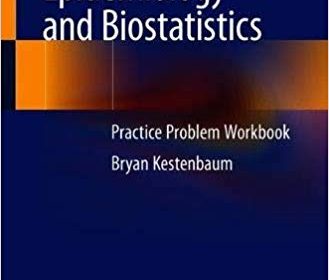Epidemiology and Biostatistics: Practice Problem Workbook

[amazon_link asins=’3319974327′ template=’ProductAd’ store=’aishabano-20′ marketplace=’US’ link_id=’bcdc131e-d6c9-11e8-9d4c-c5b4eb392a4d’]
Epidemiology and Biostatistics: Practice Problem Workbook
DOWNLOAD THIS BOOK FREE HERE
https://upsto.re/DZF3BrC
This workbook is designed to teach the major fundamental concepts in Epidemiology, Biostatistics, and clinical research design alongside the textbook “Epidemiology and Biostatistics, 2nd Edition”. It is written in concise and organized fashion with many examples to illustrate the concepts deriving from a collection of written materials created to teach Epidemiology and Biostatistics to medical students. The major differences from related titles include a “story” based approach toward teaching the material, relative brevity while maintaining focus on key concepts, and taking the perspective of first-time learners (avoiding and/or clearly defining jargon, using clear common-sense language). It features a variety of questions: long, short, and multiple choice questions. The workbook is made to provide students with the tools necessary to form their own informed conclusions from the clinical research literature.








